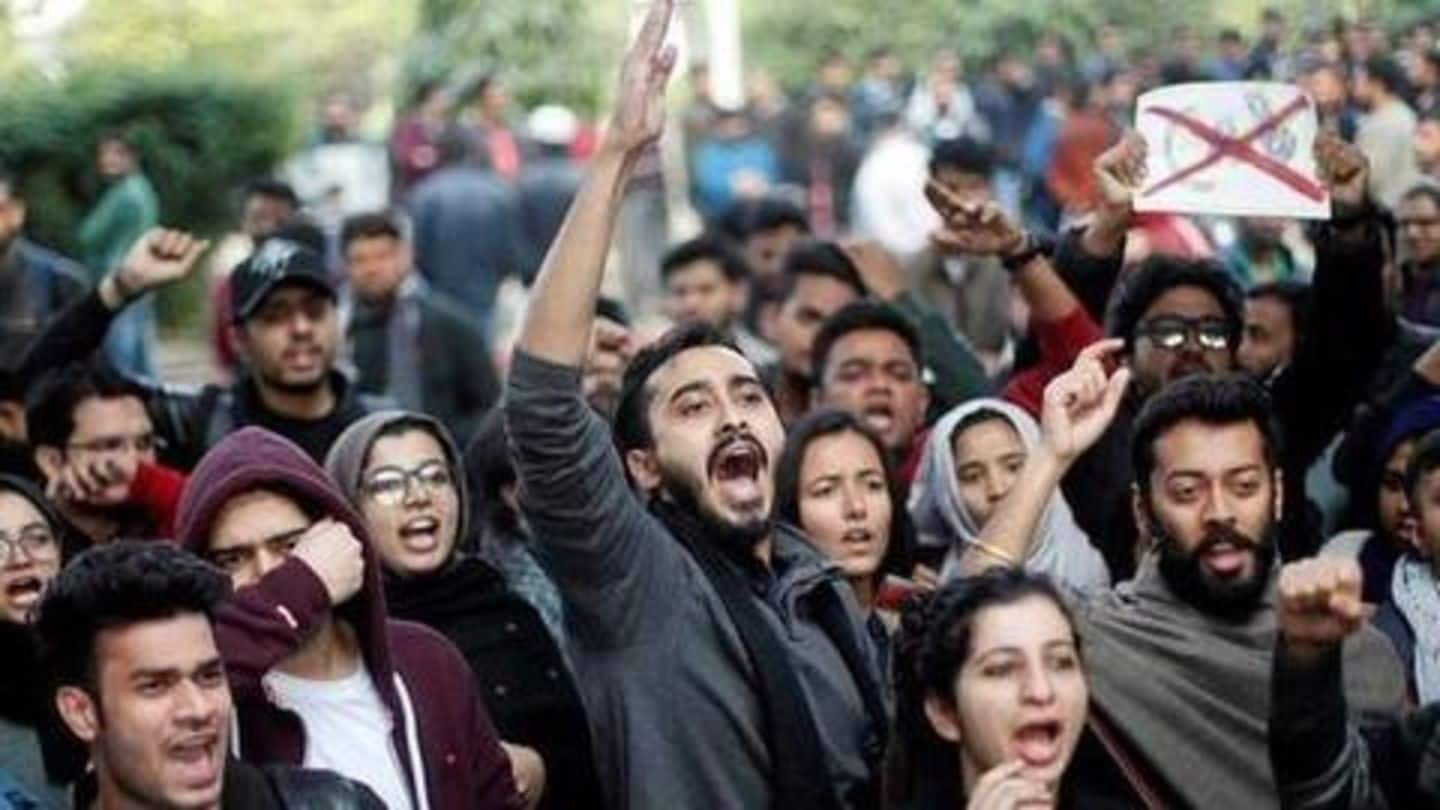
USCIRF slams India over religious freedom, New Delhi dismisses findings
What's the story
Claiming that religious minorities aren't being treated well in India, the United States Commission on International Religious Freedom (USCIRF) on Tuesday urged the Donald Trump administration to label it as a "country of particular concern".
Rejecting the conclusions, New Delhi quickly said the body's "misrepresentation has reached new levels".
In fact, India didn't seem surprised by its "biased and tendentious" views.
Here's more.
Context
USCIRF recommends, but doesn't set policy
There are few chances that Washington will take forward USCIRF's comments on religious freedom and frame a policy. The Trump administration sees New Delhi as a strong ally.
Nevertheless, the findings have brought nothing but disrepute for Prime Minister Narendra Modi, who got a thumping victory less than a year ago.
His government's handling of the Citizenship Amendment Act and Article 370 were mentioned.
Nomenclature
India is a country of "particular concern"
The body had put India in the Tier-2 category before moving it to Tier-1. This year, USCIRF did away with this "tiers" nomenclature, replacing Tier-2 with "States under watch list" and Tier-1 with "Countries of particular concern".
The last time USCIRF wanted India to be put on the second list was in 2004, two years after the 2002 Gujarat riots happened.
Report
USCIRF had several suggestions for the Trump administration
In its 2020 annual report, USCIRF urged the US administration to "impose targeted sanctions on Indian government agencies and officials responsible for severe violations of religious freedom by freezing those individuals' assets".
The body also suggested barring the entry of such officials into the US under "human rights-related financial and visa authorities".
Home Minister Amit Shah was named twice in the report.
Details
CAA, Delhi riots, Shah's "termite" comment were mentioned
About Shah, USCIRF said he referred to Muslims as "termites". CAA, which makes religion a criterion for granting citizenship to people from outside India, was also mentioned. The controversial law sparked protests across the nation.
The US body also claimed Delhi Police turned a blind eye when houses of minorities were torched during February's Hindu-Muslim riots in the National Capital.
Quote
BJP allowed attacks against Muslims, claimed USCIRF
"Following the Bharatiya Janata Party's (BJP) re-election in May, the national government used its strengthened parliamentary majority to institute national level policies violating religious freedom across India, especially for Muslims. The national government allowed violence against minorities," the report said.
Demand
"India should be kept in same category as Pakistan"
About Article 370 being revoked in August 2019, USCIRF noted that the restrictions imposed in Jammu and Kashmir had an adverse effect on religious freedom.
"Mob lynchings of persons suspected of cow slaughter or consuming beef continued, with most attacks occurring within BJP-ruled states," the report added.
It wants India to be put in the same category as Pakistan, China, or Saudi Arabia.
Dissent
India is not China, said one USCIRF commissioner
But not everyone agreed with USCIRF. One of the commissioners, Gary L. Bauer, appreciated India's democratic fiber.
"India is not the equivalent of communist China, which wages war on all faiths; nor of North Korea, a prison masquerading as a country; nor of Iran, whose Islamic extremist leaders regularly threaten to unleash a second Holocaust. India is our ally," he told Indian Express.
Reaction
The biased comments are not new: External Affairs Ministry
Taking a strong offense at the findings, spokesperson of External Affairs Ministry, Anurag Srivastava, said, "We reject the observations on India in the USCIRF annual report. Its biased and tendentious comments against India are not new."
He added, "But on this occasion, its misrepresentation has reached new levels... We regard it as an organization of particular concern and will treat it accordingly."
Do you know?
India doesn't take USCIRF seriously
To note, USCIRF was formed in 1998 after the International Religious Freedom Act came into being. But India has seldom taken it seriously. For more than a decade, New Delhi has been rejecting visa applications of USCIRF members.